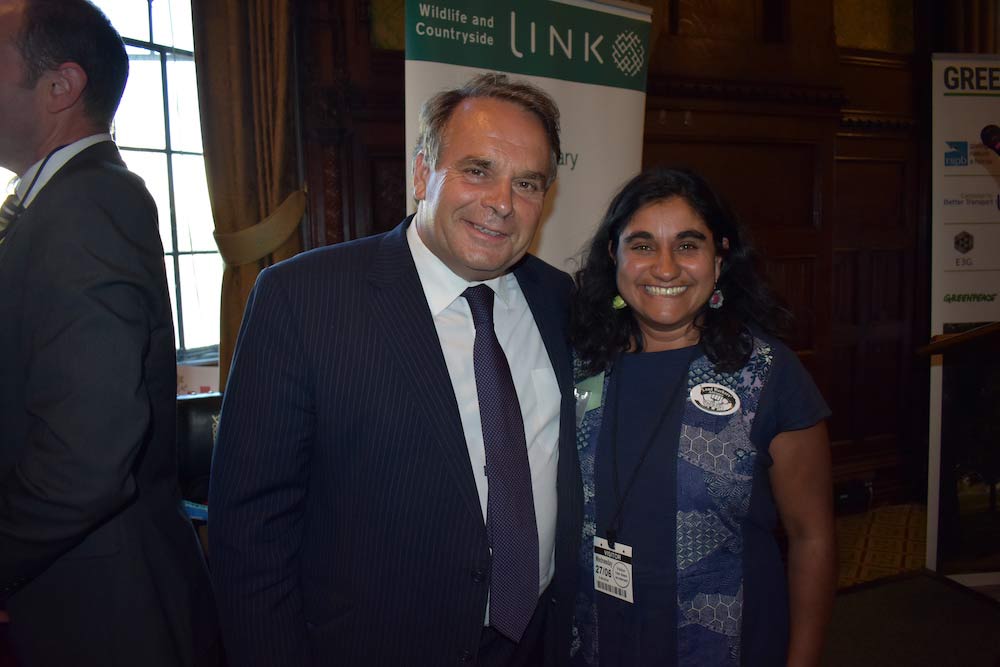In this blog, our Campaigns and Policy Coordinator Jyoti Fernandes reflects on the fact that we now have an Agriculture Act and the journey we’ve been on to get here.
After 4 years of engagement with the Agriculture Bill process, we now have an Agriculture Act signed which was given royal assent by the Queen. During this time, we have run numerous campaigns to add amendments to influence and improve the Agriculture Bill. These campaign has been designed to push the legislation further, mitigate against unintended consequences of the legislation and raise awareness of agroecology and other farming issues. None of the amendments to the Bill were adopted, but they have truly succeeded in raising the profile of the issues enormously. Earlier this week I was sent numerous congratulations from politicians for our work and the work of the formidable Vicki Hird from Sustain. We also owe a huge thanks to the APPG on Agroecology and Ruth West of the ORFC for organising the meetings with the Secretaries of State.
I feel confident that many of our concerns will be taken into account – maybe not all of the concerns we had about trade – but many of our critical concerns have, at least, been understood.
The Agriculture Act is truly a landmark move away from an area- based subsidy system to a system that pays out public money for public goods, which if done right has the potential to create a landmark new subsidy system. We will need to stay deeply engaged in the development of the financial support system for farming to help it develop its full potential. This is something we are 100% committed to do. The most important thing we can do is not give up!
The Landworkers’ Alliance began this journey with the launch of the policy document Farming Policy Post Brexit at our ‘A Place at the Table’ action in front of the DEFRA offices, well before a time when we could imagine being invited to the table.
Speaking for the LWA, Ed Hamer said ‘The Landworkers’ Alliance has been campaigning for the past five years for greater recognition of the role small-scale and family farmers play in feeding the country. The UK’s exit from the Common Agricultural Policy provides the most significant opportunity in a generation to reverse the inequalities of area-based payments and replace them with a truly progressive policy framework that genuinely supports more farmers and better food. As we leave Europe and the opacity of the CAP behind we’re confident that UK taxpayers will no longer tolerate farmers being paid simply for owning land. We believe the farm support budget could be targeted much more effectively to enable farmers to supply quality produce to local markets.”
We then met with Michel Gove and Zac Goldsmith at the Oxford Real Farming Conference where policy colleague Ed Hamer described the problems with an area-based subsidy system.
Once the Bill draft one was launched our members engaged in the consultations, wrote in letters, attended workshops, wrote to MP’s and marched in the streets! We’ve been determined to make our voices heard!
At the second ORFC meeting with Gove, the LWA asked him if we could be involved in the ELMS process (which had previously been closed), which we followed up with MP pressure and were then invited to be a part of an ELMS engagement group.
We regularly attend ELMS meetings in England and, as you will know, have been contracted to conduct a test and trial for horticulture. Similarly in Wales and Scotland we have been making every effort to be a part of the process as it emerges.
The engagement is not a perfect process – it’s full of frustration as we hit dead ends in the labyrinth, but we are determined. I fully believe that the civil servants want to create something progressive and ambitious, so we will eventually get there!
Over the course of this Bill many groups began to come together with a common vision of putting the term ‘agroecology’ into the Ag Bill. Over 5,000 of you wrote to your MP’s in support of this.
Then bang in the middle of progress on the first draft of the Agriculture Bill, the UK held an election, and the Bill was dropped. In the meantime Secretary of State Theresa Villers attended the ORFC and again met with advocates of agroecology where we collectively asked for agroecology to be added to the Agriculture Bill when it resurfaced. Amazingly this happened – version 2 of the Bill included “agroecology’ in a section on definitions. It isn’t listed as one of the main public goods, but it did make it onto the face of the Bill, which is an achievement.
More than that, what we have all achieved is true solidarity amongst our members, with farming networks, green organisations, consumers, and imaginative politicians across political parties. We have stood together with high hopes for our food and farming system. I have been energised and inspired by working with all of you.
Now onto the Trade and Environment Bills… lots of fun to be had there!!!!


